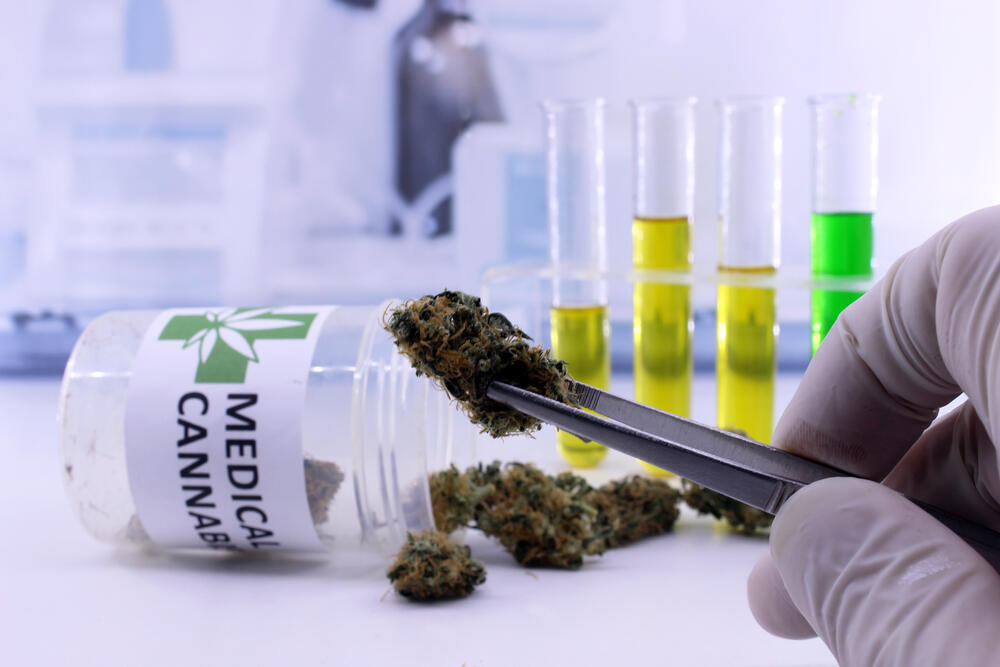Getting your Trinity Audio player ready...
In Israel, cannabis remains a Schedule I controlled substance under the Dangerous Drugs Ordinance, with recreational use strictly prohibited. However, the country has been at the forefront of medical cannabis legalization, allowing its use for over a decade to treat chronic pain, chemotherapy-induced side effects, and inflammatory bowel diseases.
According to the Israeli Medical Cannabis Unit, the number of active medical cannabis licenses has skyrocketed from 23,500 in 2016 to over 140,000 today, with the majority of patients using cannabis to manage chronic pain syndromes.
While the medicinal properties of cannabinoids are well-documented, consistent use can result in adverse effects, including physical dependence and problematic use. However, until now, the negative consequences of long-term medical cannabis use and tools to assess them have been poorly understood.
Recreational cannabis use, particularly frequent high-THC consumption, is linked to a range of neurocognitive and psychological risks. These include impaired short-term memory, increased likelihood of motor vehicle accidents, and a fourfold higher risk of psychotic episodes. Heavy or prolonged use can also adversely impact mental health, social functioning, and overall quality of life.
A recent study, published in Addictive Behaviors, explored these risks within the context of the medical cannabis ecosystem. Conducted by leading researchers—including Prof. Sharon Sznitman (University of Haifa), Prof. Shaul Lev-Ran (Israel Center on Addiction) and Dr. Silviu Brill (Sourasky Medical Center)—the study analyzed over 400 chronic pain patients who were prescribed medical cannabis.
The findings revealed that while medical cannabis patients do not exhibit addiction-like compulsive behaviors typically associated with recreational users, some experience negative consequences— including physical discomfort, social withdrawal, and cognitive impairments—that negatively affect their quality of life. These patients reported higher levels of anxiety, emotional distress, and decreased psychological well-being, suggesting that problematic use of medical cannabis may extend to multiple domains of life.
A new tool to detect negative outcomes
To address this, the researchers developed a specialized diagnostic tool called the Medical Cannabis Negative Consequences Scale (MCNCS). This eight-question assessment is designed to help patients and caregivers identify potential adverse effects of medical cannabis use. MCNCS evaluates common risks, including:
- Unpleasant physical sensations
- Cannabis use in hazardous situations (e.g., driving or caring for children)
- Social isolation
- Decline in functional capacity
Statistical analysis showed a clear link between higher scores on the MCNCS and reduced quality of life, including weaker social relationships, degraded environmental well-being, and heightened levels of anxiety and emotional distress.
Interestingly, the study highlighted that the problematic use profile of medical cannabis patients differs significantly from that of recreational users or opioid-dependent patients. Recreational users are more likely to exhibit compulsive consumption patterns, while opioid users may misuse medications against medical guidelines. Medical cannabis patients, in contrast, exhibit a unique profile of problematic use that often stems from unintended adverse effects rather than outright misuse.
Implications for patients and providers
The MCNCS has the potential to become a valuable resource for patients, families, and healthcare providers—including physicians, psychologists, and addiction specialists—by facilitating early identification of negative outcomes and enabling personalized interventions. Open communication between patients and caregivers is critical to monitoring both the therapeutic benefits and risks of cannabis-based treatments.
Cannabis is a substance with tremendous therapeutic potential, but it also carries the risk of harm for certain patients. It is imperative that medical cannabis users are fully informed about both the advantages and long-term risks of cannabinoids, as well as the warning signs of problematic use, the researchers noted.
Risks for younger users and addiction profiles
The risks of cannabis use are particularly pronounced for adolescents and young adults, whose brains are still developing. Prolonged, heavy use during this critical period increases the likelihood of neurocognitive impairments and other long-term consequences. Research indicates that approximately one in five recreational users will develop a cannabis use disorder (CUD), characterized by uncontrolled consumption, psychological and physical dependence, and functional impairments.
Key at-risk groups for cannabis addiction include:
- Men
- Individuals who begin using at a young age
- People with a history of childhood trauma
Get the Ynetnews app on your smartphone: Google Play: https://bit.ly/4eJ37pE | Apple App Store: https://bit.ly/3ZL7iNv
Evidence on the prevalence of problematic use among medical cannabis patients is still emerging. Preliminary research suggests that 10%–27% of patients may develop negative social or health outcomes due to problematic use. However, diagnosing cannabis-related addiction in medical contexts remains a challenge, as daily use of medications with dependence potential—such as opioids, Ritalin, or cannabis—often leads to physical dependence without necessarily indicating misuse or addiction.
Next steps in Cannabis research
A follow-up study is now underway to identify specific risk factors for problematic medical cannabis use. Preliminary findings suggest that patients with high levels of depression or those who engage in heavy concurrent alcohol use may be at greater risk.
The researchers emphasized the importance of early intervention and personalized care to address these risks. A transparent, patient-centered approach can help identify early warning signs, closely monitor patient outcomes, and ensure that cannabis therapy remains both safe and effective.
In conclusion, while cannabis offers significant therapeutic potential, its use requires a balanced approach that considers both its benefits and its risks. By leveraging tools like the MCNCS and fostering open communication between patients and providers, the medical community can maximize the therapeutic efficacy of cannabis while minimizing potential harm.



